Grape Variety
Nebbiolo
"neb-ee-OH-loh"
Wine Styles
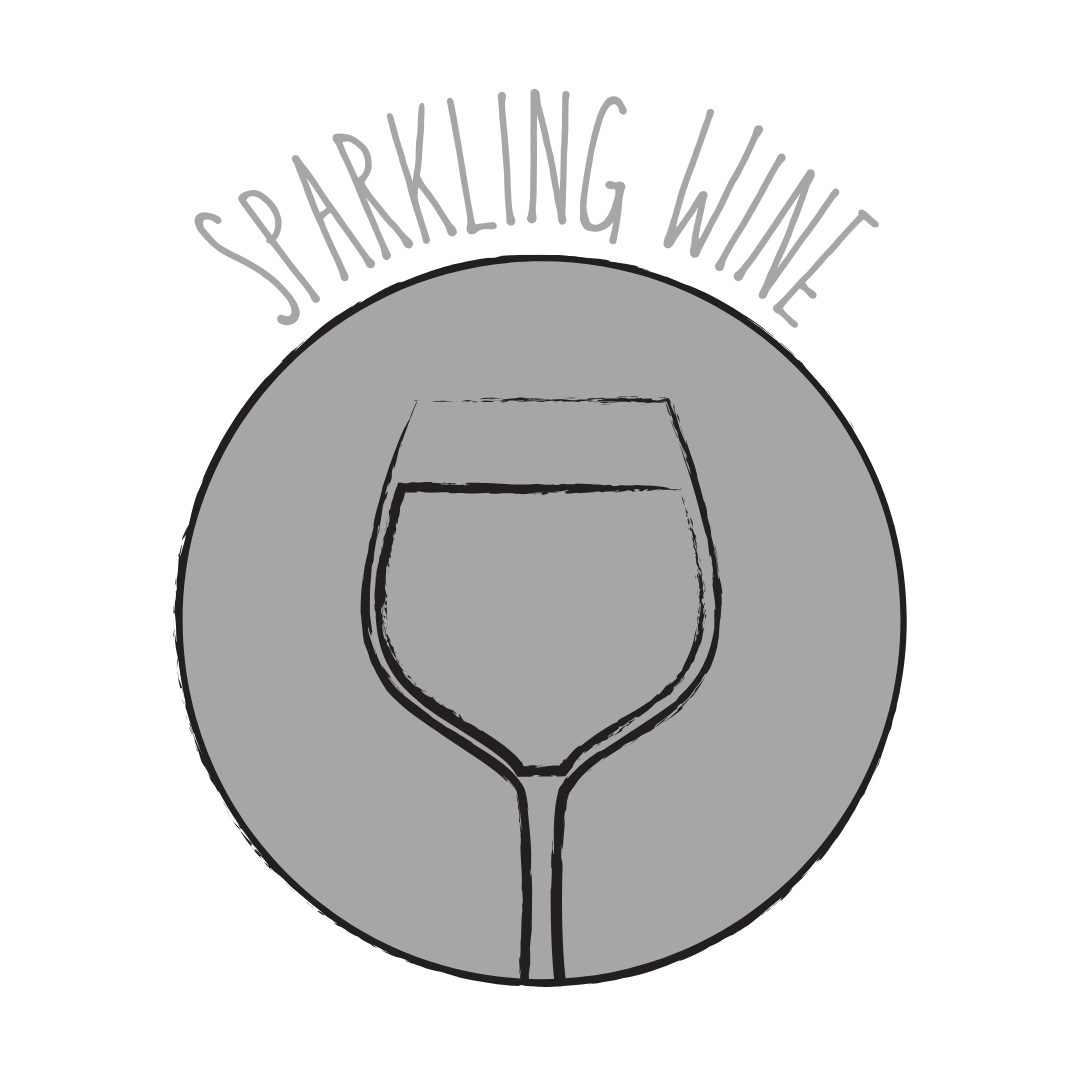 Sparkling
Sparkling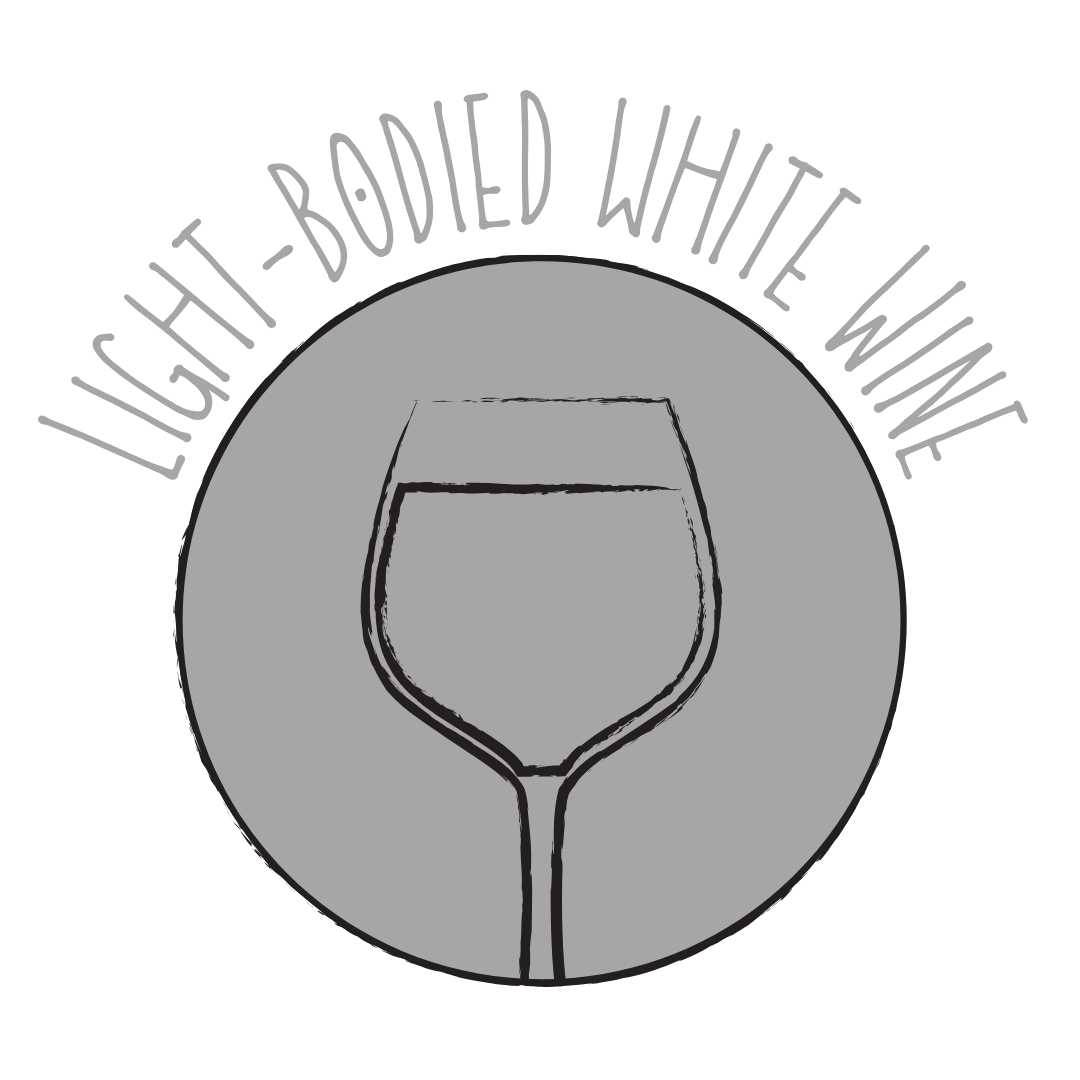 Light White
Light White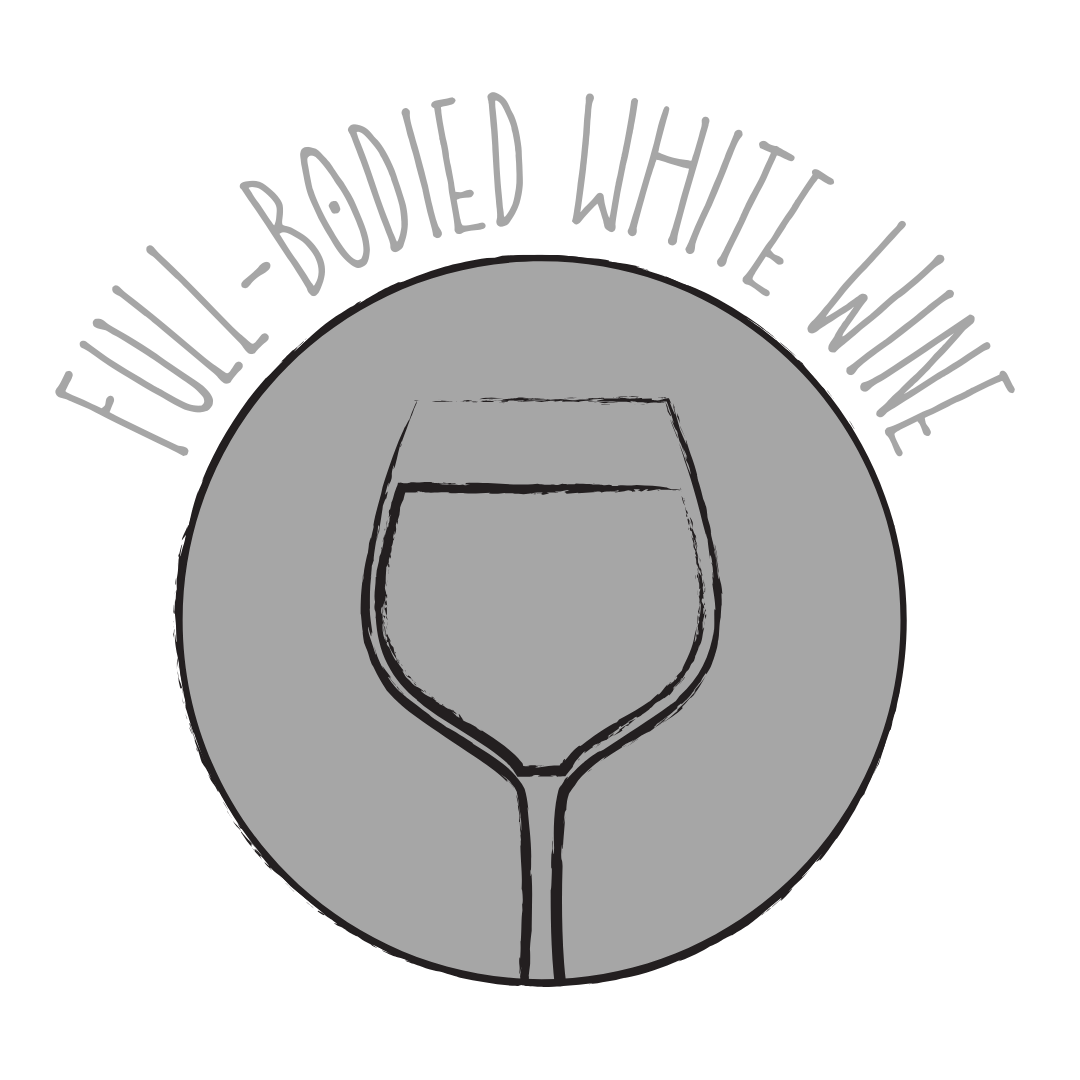 Full White
Full White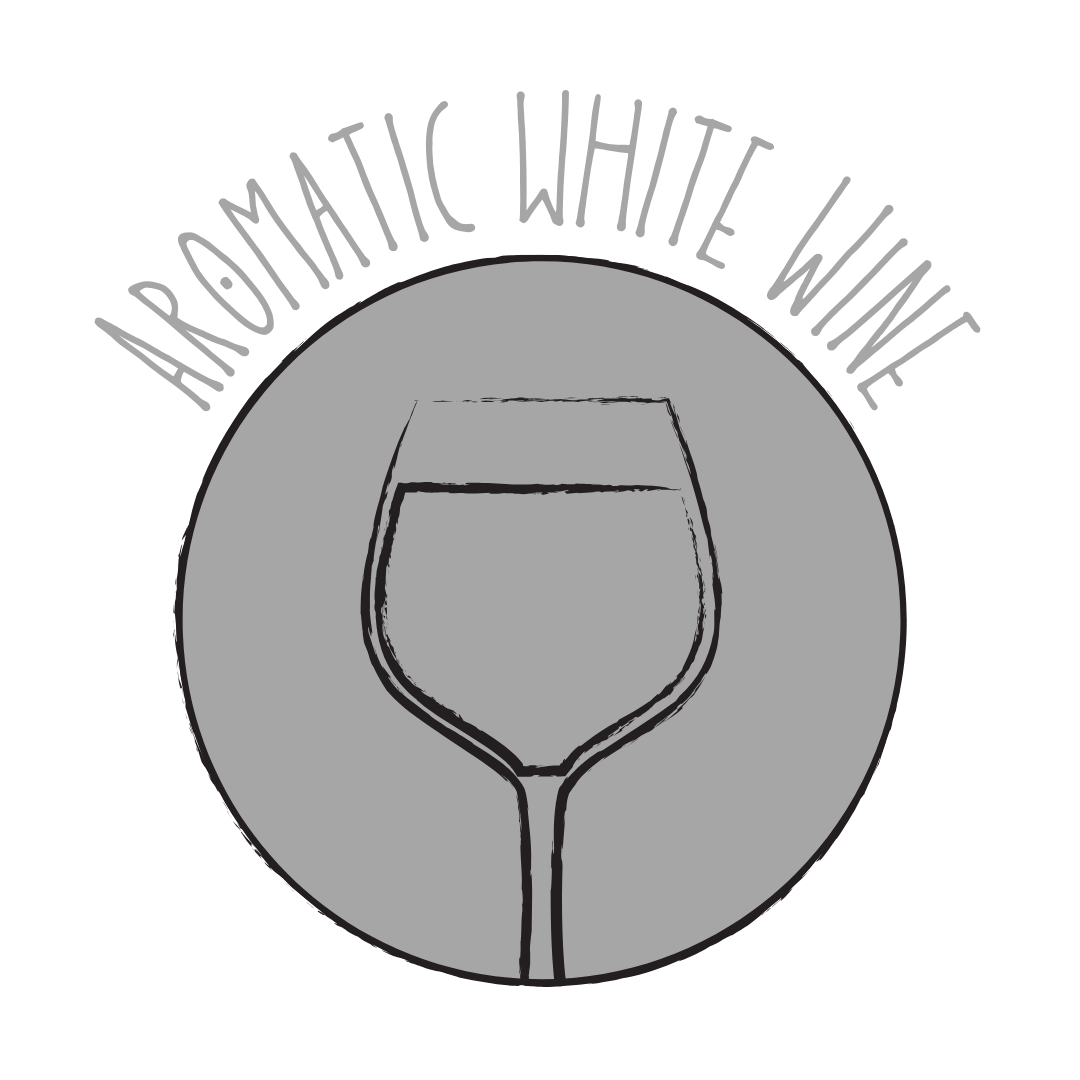 Aromatic
Aromatic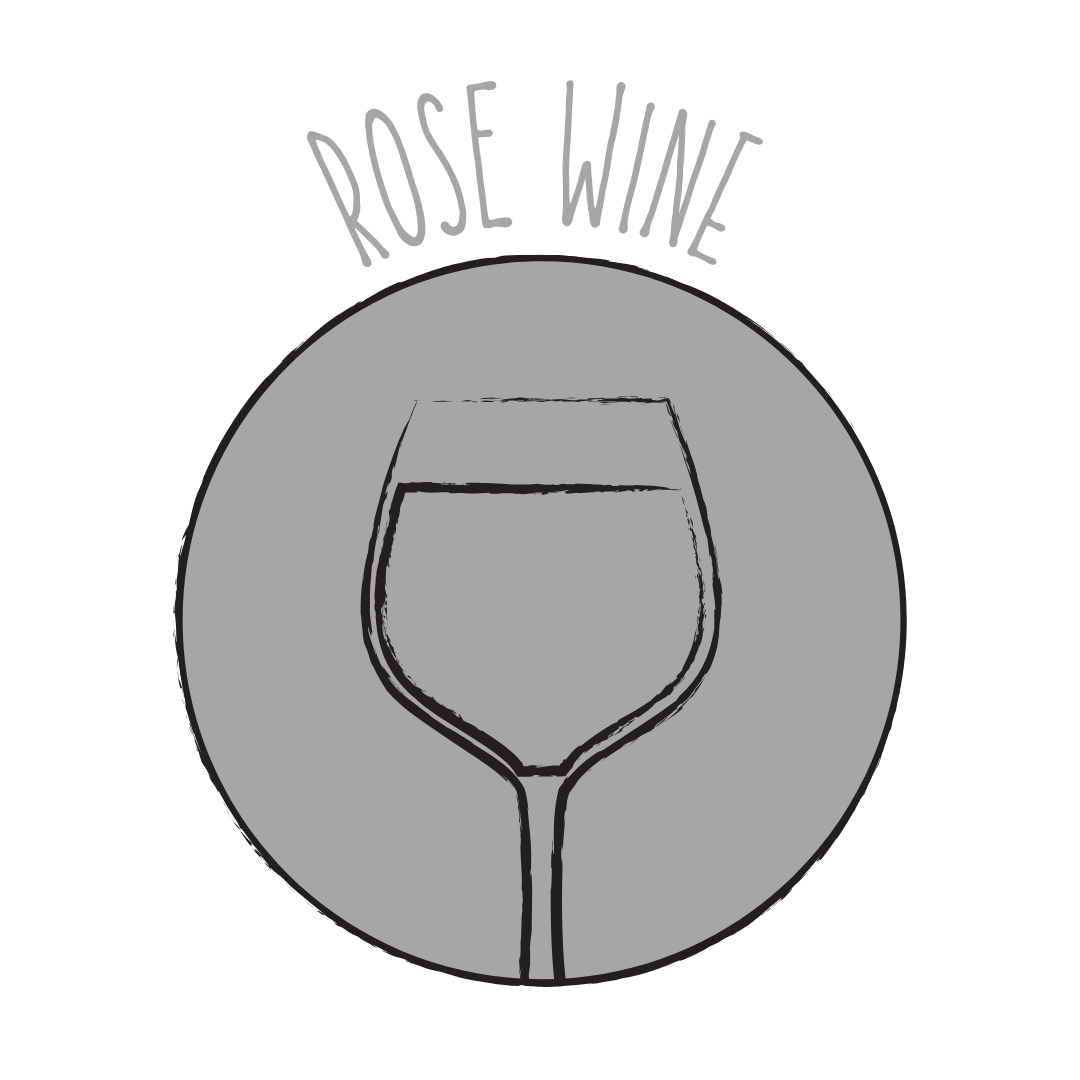 Rosé
Rosé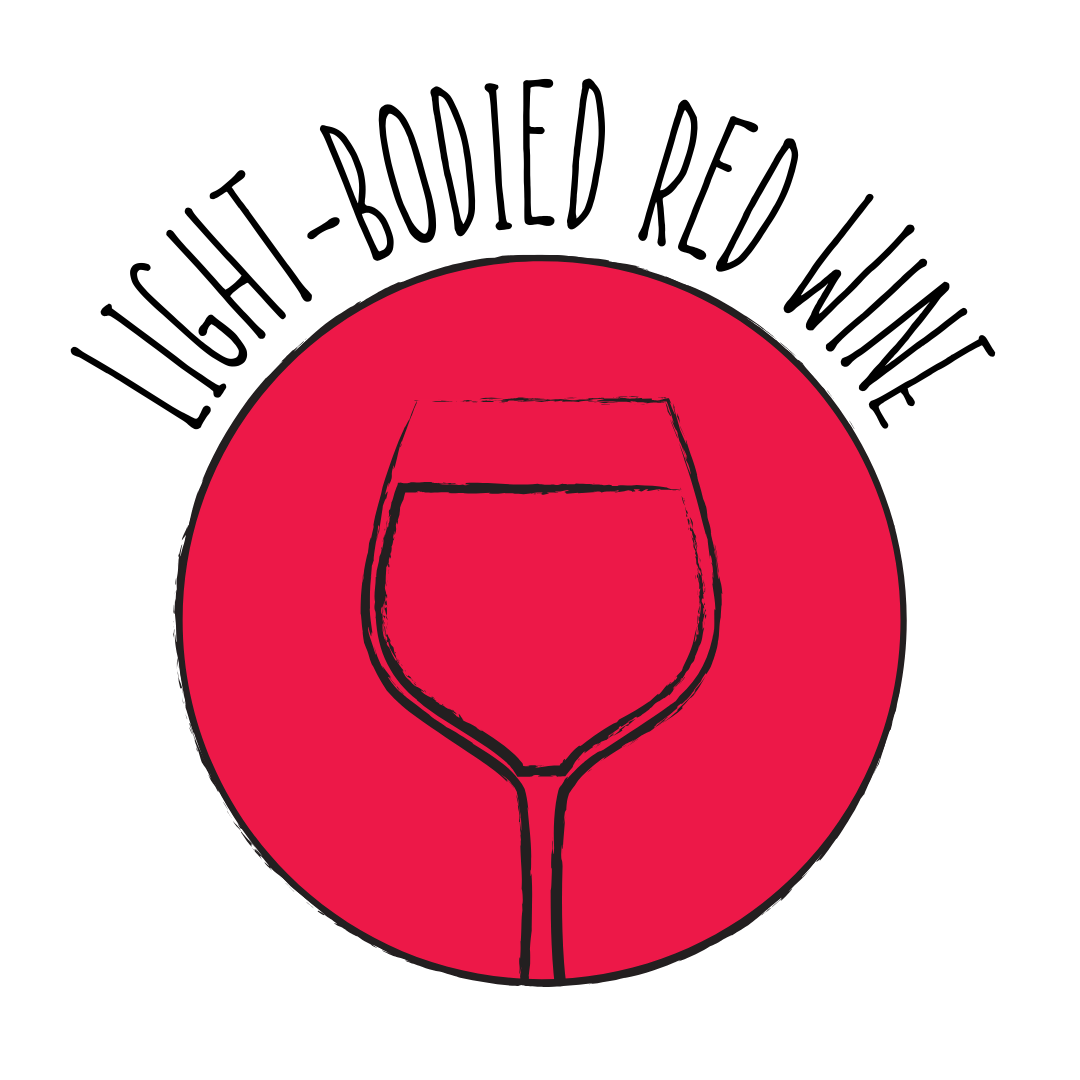 Light Red
Light Red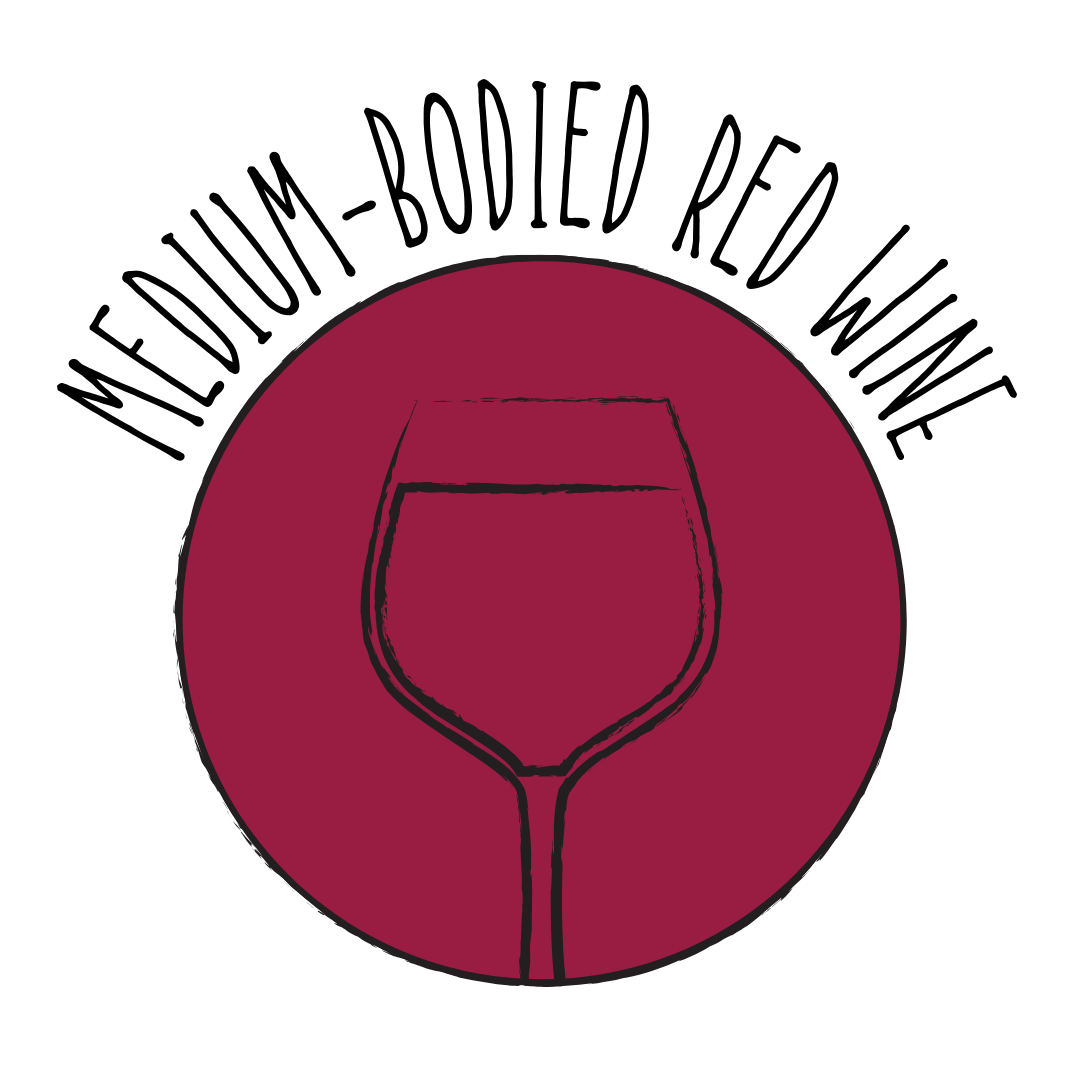 Medium Red
Medium Red Full Red
Full Red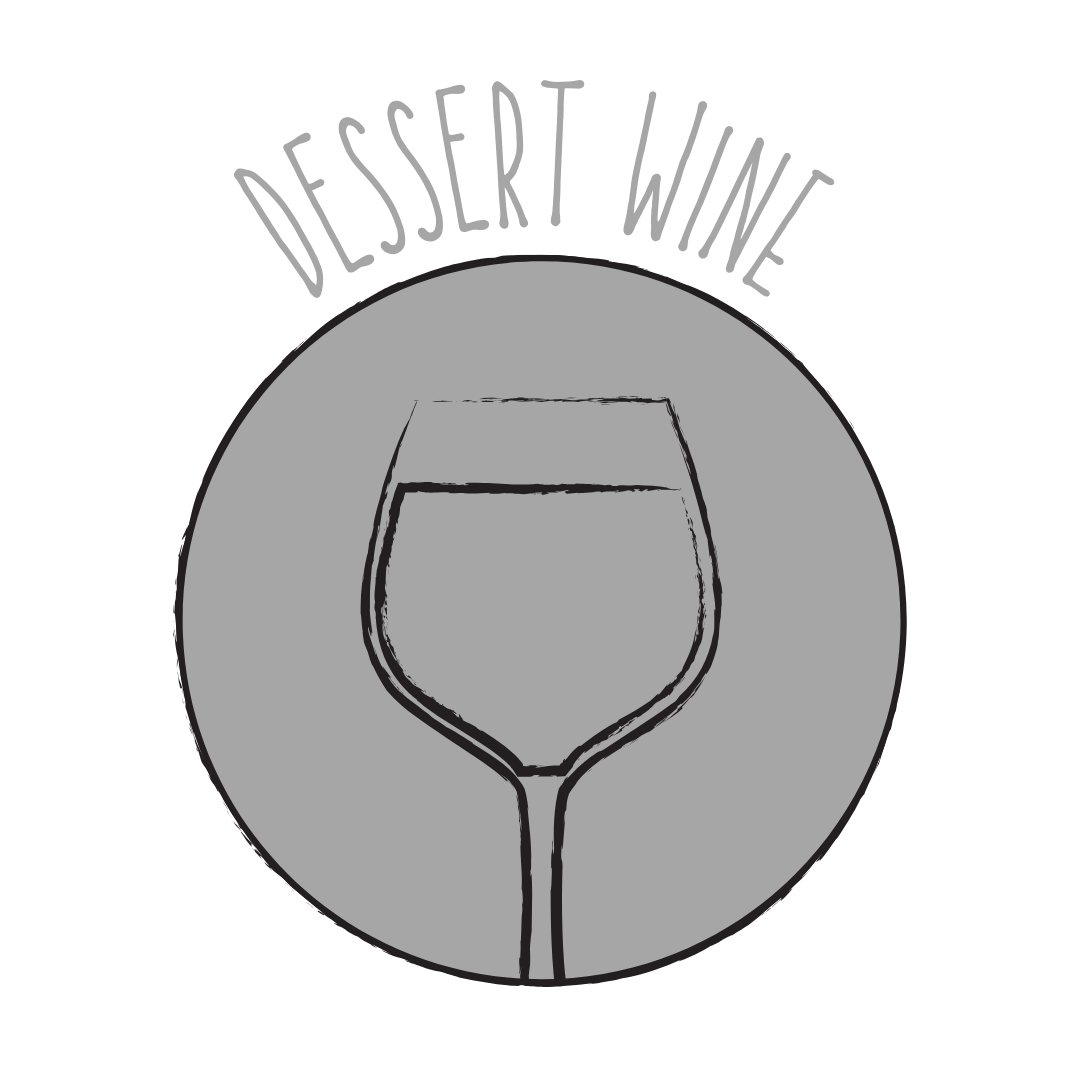 Dessert
DessertAbout Nebbiolo
Origin
Piedmont, Italy
History
Nebbiolo is a red wine grape variety predominantly associated with its native Piedmont region in Italy. The name 'Nebbiolo' is thought to derive from 'nebbia', the Italian word for fog, which is common during harvest time in the Langhe region. The grape has a long history, with the first mentions dating back to the 13th century. It is the sole grape used in the prestigious Denominazione di Origine Controllata e Garantita (DOCG) wines of Barolo and Barbaresco, as well as other notable wines like Gattinara and Ghemme.
Appearance
Small, thin-skinned berries with a deep blue-black hue when ripe.
Growing Traits
Nebbiolo is an early-budding and late-ripening grape variety, requiring a long growing season to achieve full phenolic ripeness. It thrives in calcareous marl soils and prefers south or southwest-facing slopes to maximize sun exposure. The grape is highly sensitive to terroir, with its characteristics varying significantly based on the vineyard location. Despite its prominence in Piedmont, Nebbiolo represents only about 10% of the vineyard area in the region.
Wine Characteristics
Body
4/5
Sweetness
1/5
Tannin
5/5
Acidity
5/5
Alcohol
3/5
Medium to full-bodied with a robust structure, offering depth and complexity. Typically vinified dry, though it can exhibit ripe fruit characteristics. High tannin levels, contributing to a firm and sometimes astringent mouthfeel. High acidity, providing balance and enhancing its aging potential. Moderate to high alcohol content, generally around 13-15%, contributing to its richness.
Taste Profile

Tar

Rose

Cherry
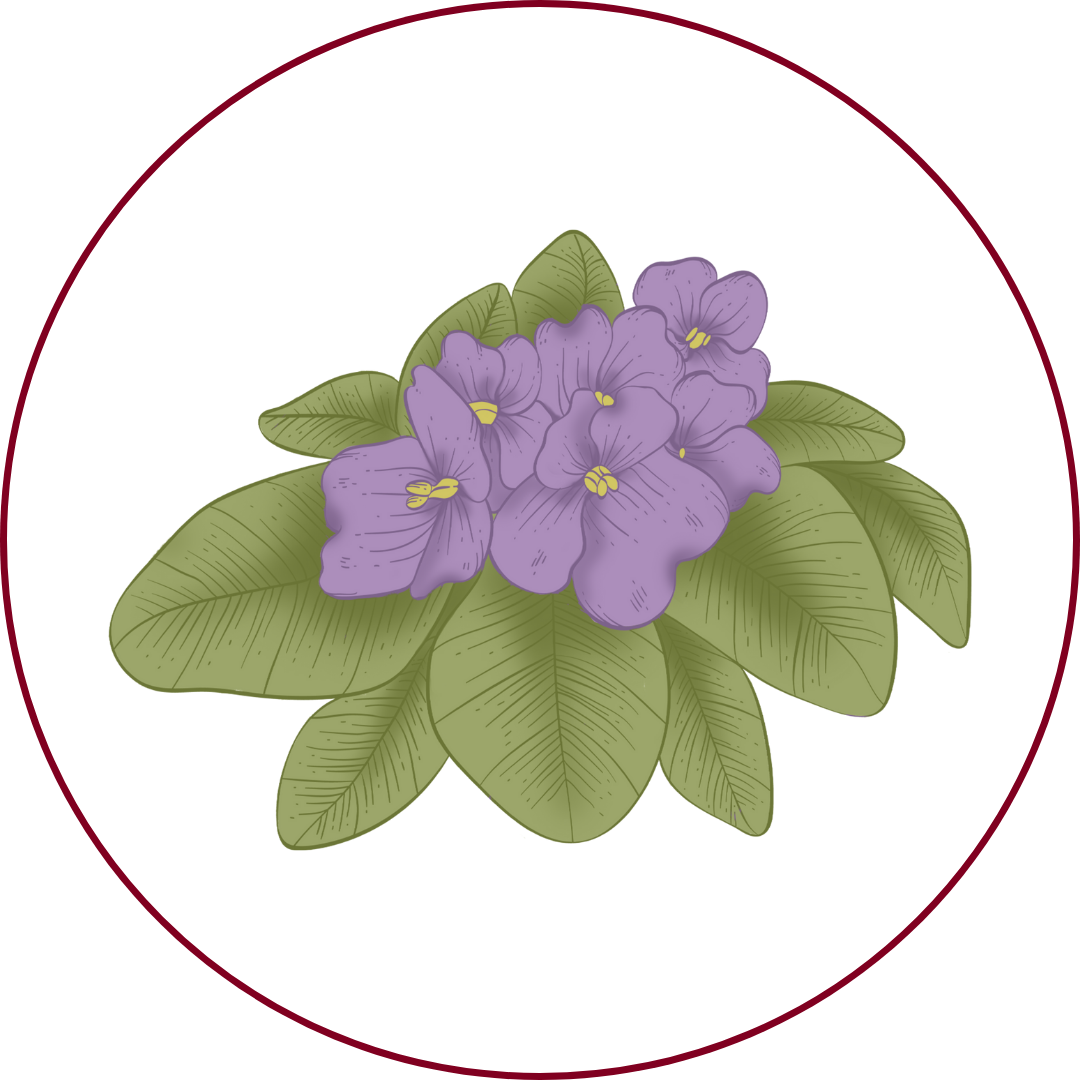
Violet
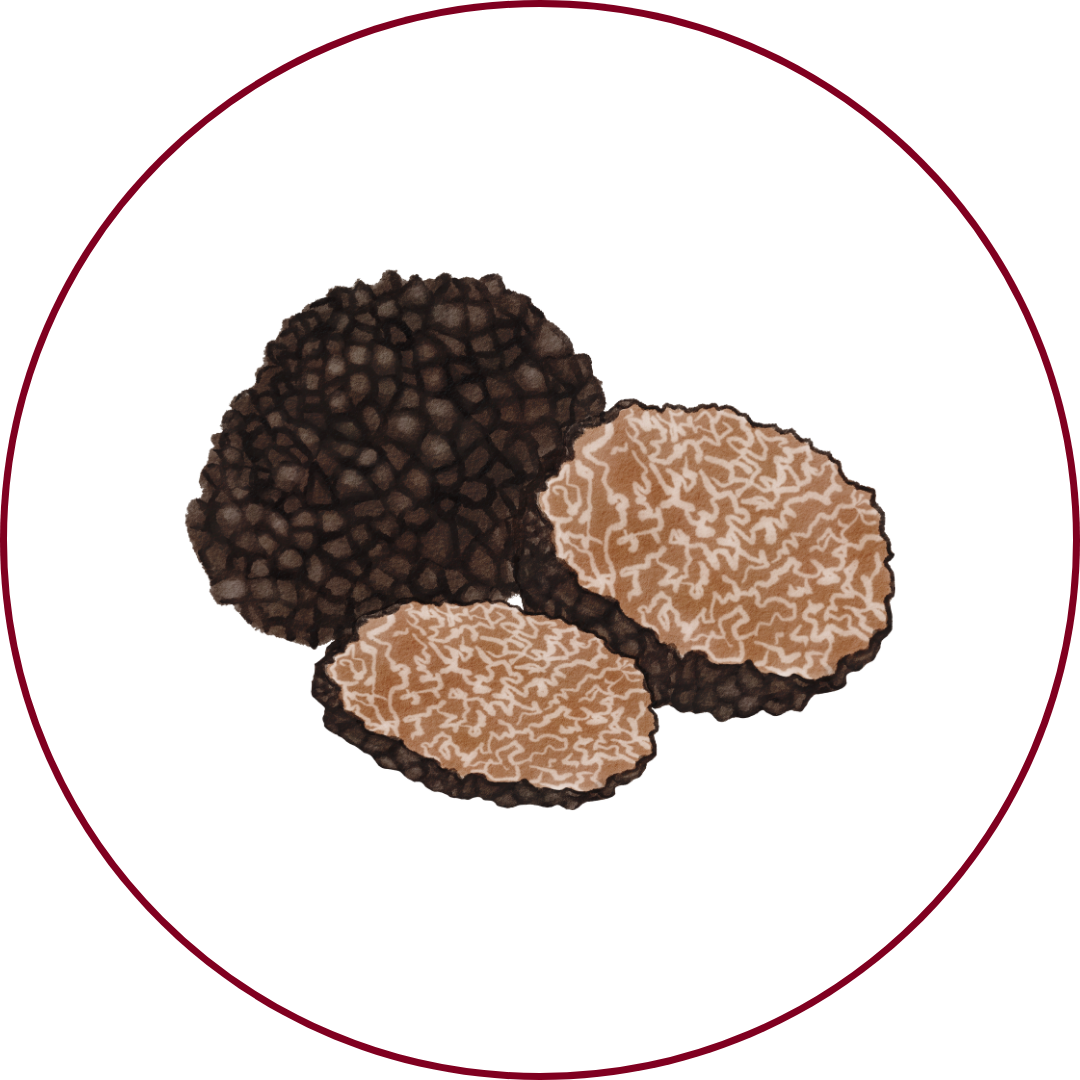
Truffle
Nebbiolo wines are renowned for their complex aroma profile, often described as 'tar and roses.' They exhibit flavors of cherry, violet, and truffle, with earthy undertones. On the palate, they are full-bodied with high tannins and acidity, leading to a long, structured finish. These characteristics contribute to Nebbiolo's exceptional aging potential, with well-made examples developing greater complexity over decades.
Food Pairing
Nebbiolo's high tannins and acidity make it an excellent match for rich, fatty dishes that can balance its structure. It pairs well with braised meats, truffle-infused dishes, and aged cheeses. Traditional Italian dishes like osso buco, risotto with porcini mushrooms, and tajarin pasta with white truffle complement Nebbiolo's complex flavor profile.
Growing Regions

Italy
PiedmontLombardyValle d'Aosta

United States
CaliforniaWashington

Australia
VictoriaNew South Wales
Notable Wines & Producers
Barolo DOCG
Giacomo Conterno
Bartolo Mascarello
Barbaresco DOCG
Gaja
Produttori del Barbaresco
Langhe Nebbiolo DOC
Vietti
Pio Cesare
Nebbiolo FAQ
Common questions about this grape variety
What is the origin of Nebbiolo?
+
Piedmont, Italy
Is Nebbiolo wine full bodied?
+
Nebbiolo has a body level of 4 out of 5. Which means that Nebbiolo is Moderate to Full bodied.
Is Nebbiolo wine dry or sweet?
+
Nebbiolo has a dryness level of 1 out of 5. Which means that Nebbiolo is Dry.
Where is Nebbiolo wine from?
+
Piedmont, Italy
Where is Nebbiolo grown?
+
Nebbiolo is grown in Italy (Piedmont, Lombardy, Valle d'Aosta)United States (California, Washington)Australia (Victoria, New South Wales).
What is Nebbiolo like?
+
Nebbiolo wines are renowned for their complex aroma profile, often described as 'tar and roses.' They exhibit flavors of cherry, violet, and truffle, with earthy undertones. On the palate, they are full-bodied with high tannins and acidity, leading to a long, structured finish. These characteristics contribute to Nebbiolo's exceptional aging potential, with well-made examples developing greater complexity over decades.
What does Nebbiolo pair with?
+
Nebbiolo's high tannins and acidity make it an excellent match for rich, fatty dishes that can balance its structure. It pairs well with braised meats, truffle-infused dishes, and aged cheeses. Traditional Italian dishes like osso buco, risotto with porcini mushrooms, and tajarin pasta with white truffle complement Nebbiolo's complex flavor profile.
What does Nebbiolo taste like?
+
Nebbiolo wines are renowned for their complex aroma profile, often described as 'tar and roses.' They exhibit flavors of cherry, violet, and truffle, with earthy undertones. On the palate, they are full-bodied with high tannins and acidity, leading to a long, structured finish. These characteristics contribute to Nebbiolo's exceptional aging potential, with well-made examples developing greater complexity over decades.
Take Nebbiolo Knowledge with You
Access detailed grape profiles, tasting notes, and pairing suggestions on your iPhone.
Download on theApp Store